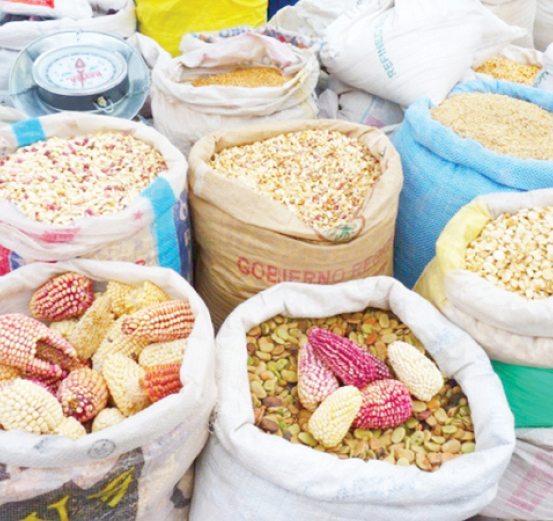Agriculture is an old occupation practiced by majority of the Nigerian populace which serves as their major source of livelihood. Through agriculture, adequate food is being produced thus ensuring food security in the country.
However, Nigeria is on a time bomb due to food insecurity that is currently reaching its peak. This has made the present administration to declare a state of emergency on food insecurity in the country. This is indeed a great step in addressing the problem since the government has the political will and is committed to making the problem history.
It is imperative at this juncture to know that addressing this problem is not possible without examining its root cause(s) and identifying the appropriate actions to be taken to make it history. In view of this, I am writing to highlight the major factors associated with food insecurity in Nigeria.
As it is today, the major factor responsible for food insecurity is the deterioration of security in the country which necessitated the suspension of farming activities in many states across the country. It is clear that the problems of kidnapping and armed banditry in Kaduna, Katsina, Sokoto and Zamfara states of the northwestern region have forced many farmers in the affected areas of these states to abandon their farms due the intensity of violent activities perpetrated by bandits in the areas.
- Breastfeeding a blessing for babies – Experts
- Protest: Navy forestalls looting of Dawanau grains market in Kano
The story is the same in the North East and North Central as they are also rocked by Boko Haram insurgency and farmer-herder clashes which have been taking place for over a decade. The emergence and proliferation of these violent groups has drastically reduced the quantity of food cultivated in the country which exposed many people to hunger, poverty, displacement and unemployment.
Looking at the scenario, it can be ascertained that food insecurity and many other social problems can effectively be addressed only if the above-mentioned security threats are adequately tackled thereby providing a conducive atmosphere for farmers to cultivate adequate food and cash crops.
In view of the foregoing, I personally advise the federal government, under the leadership of President Bola Ahmed Tinubu, to take all possible precautionary measures to combat insecurity in all its ramifications in the country. This can be achieved through social protection programmes such as poverty reduction schemes, subsidising and reviving the education sector including the nomadic education system, encouraging collaboration between community-based security initiatives and conventional security in identifying and apprehending violent criminals as well as imposing appropriate sanctions on those apprehended for perpetrating such acts of violence.
As a complementary role, the academia and media can also help in identifying the causes of these menace through objective investigation from the affected communities as their findings and recommendations will give headway in the formulation and implementation of policies that can address the problems squarely while the general public should be proactive through sharing information of security interest to the relevant agencies for appropriate action.
Taking the above measures will greatly help in addressing the security challenges bedeviling the country including the growing food insecurity.
Usman Suleiman Sarki can be reached via [email protected]

 Join Daily Trust WhatsApp Community For Quick Access To News and Happenings Around You.
Join Daily Trust WhatsApp Community For Quick Access To News and Happenings Around You.


